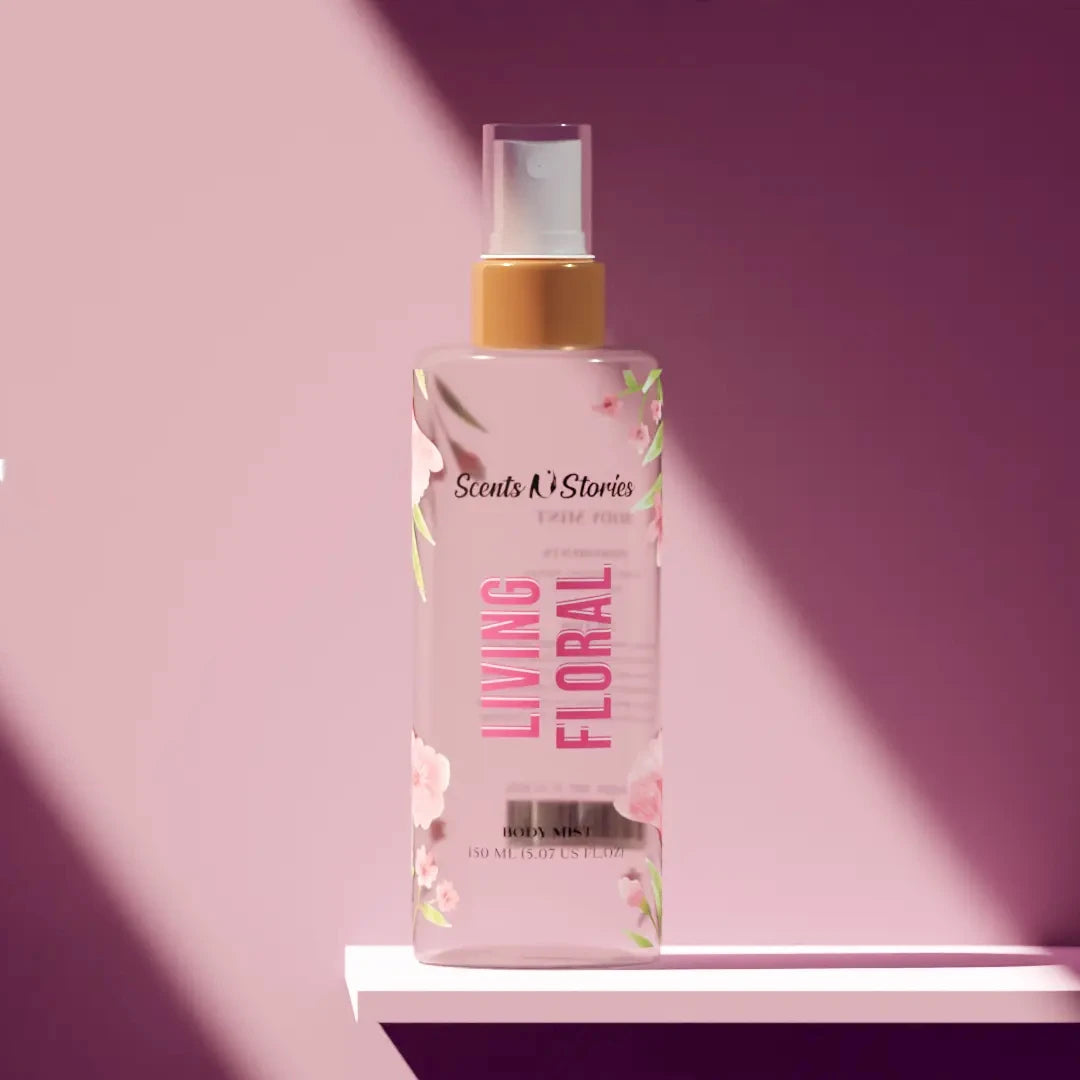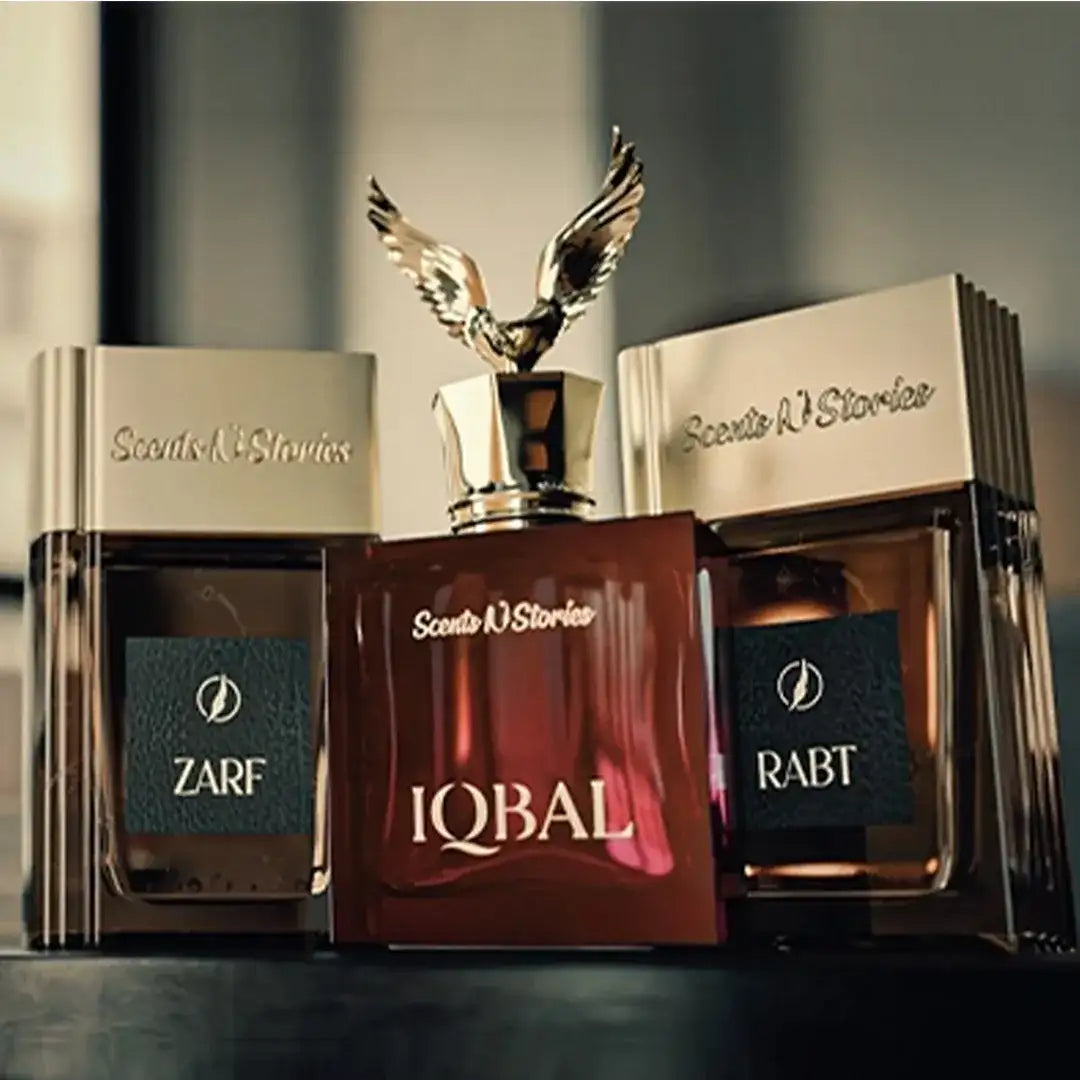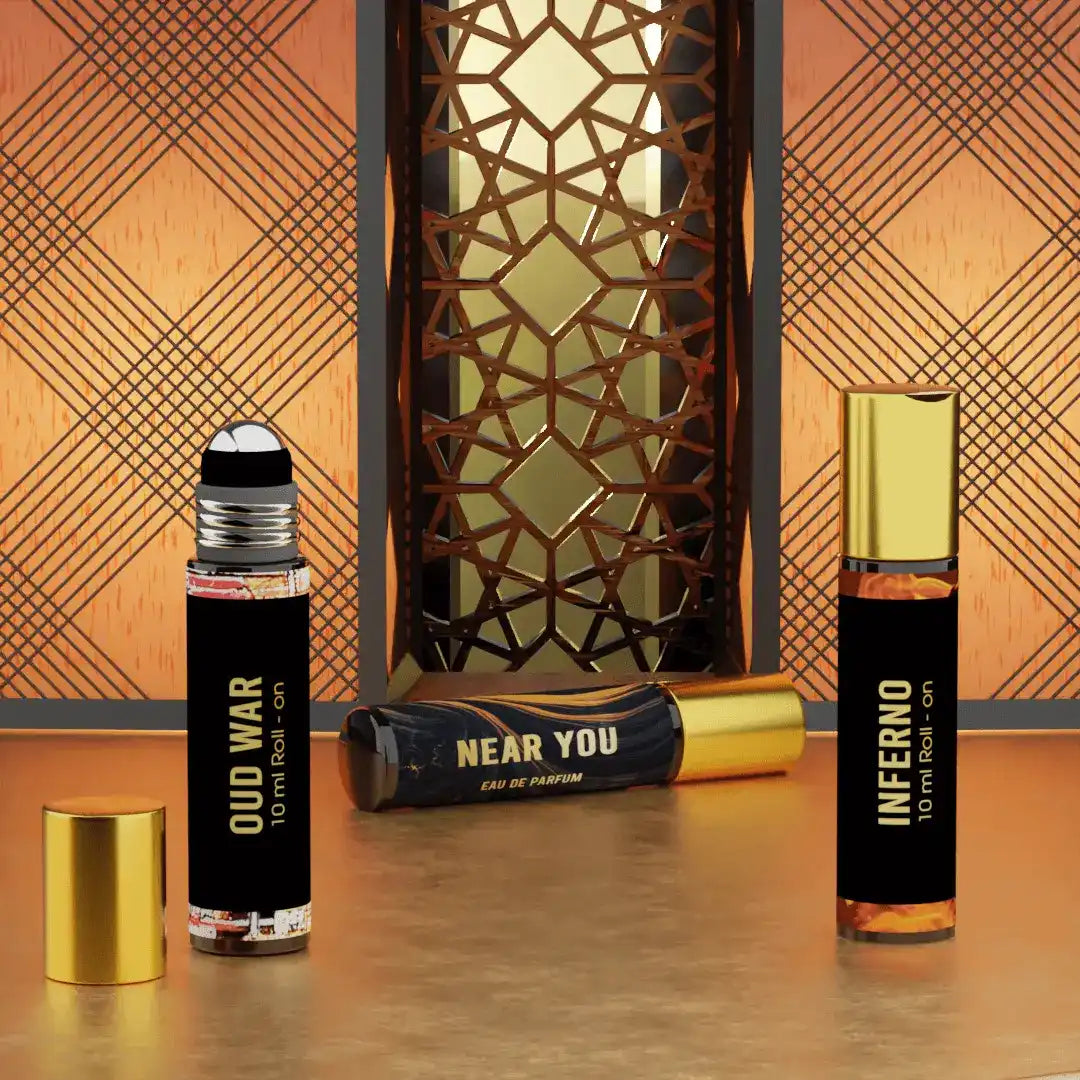Surprising Facts About Perfumes You Probably Didn’t Know
Perfumes aren’t just about smelling good, they’re about creating memories, boosting confidence, and leaving a trail that people remember you by.
Across the world, fragrance is considered a silent accessory, one that reflects your mood and personality without saying a word.
At Scent n Stories, we believe every fragrance is more than just a bottle of scent, it’s a story, a vibe, and a personal signature.
Let’s uncover some surprising facts about perfume that will not only deepen your love for it but also help you make smarter choices when buying your next fragrance.
17 Surprising Facts About Perfume You Should Know
Perfume isn’t just about smelling nice, it’s a blend of history, science, art, and even a little mystery. From ancient rituals to modern luxury, fragrances carry stories that most people never realize.
Here are 17 surprising facts about perfumes that will change the way you see your favorite bottle.
1. The Origin of the Word “Perfume”
The word comes from the Latin “per fumum” which means “through smoke.”
Ancient civilizations like the Romans and Arabs used scented oils and incense in ceremonies, some even releasing fragrance through fountains during grand feasts.
2. The First Perfume Maker Was a Woman
The world’s earliest recorded perfumer was Tapputi, a chemist in Mesopotamia around 1200 BCE.
She developed early extraction techniques that laid the foundation for modern perfumery.
3. Oud: The Liquid Gold of Perfumery
Oud is one of the most luxurious scents in the world, often called “liquid gold.” It comes from agarwood trees in South Asia that, when infected by a specific fungus, produce a resin that forms oud.
The first extraction of this resin is the richest and most prized, proof that in perfumery, mold really is gold.
4. Why Perfume Smells Different Over Time
Perfume evolves in stages:
- Top notes (citrus, light florals) – first impression, fade quickly.
- Heart notes (florals, spices) – the main character of the scent.
- Base notes (musk, amber, woods) – the longest-lasting foundation.
That’s why your fragrance changes as the hours pass.
5. Perfumes Do Expire
Most perfumes last 3–5 years if stored properly. Higher concentrations like Parfum last longer, while lighter formulas may lose their scent quicker.
6. Storage Matters
Sunlight, humidity, and temperature changes damage perfumes. Keep your bottles upright, in a dark, cool space, never in bathrooms or cars.
7. Eau de Parfum vs. Parfum
It’s all about concentration:
- Eau de Toilette (EDT): 5–15% oils, lasts 2–4 hours.
- Eau de Parfum (EDP): 15–20% oils, lasts 6–8 hours.
- Parfum: 20%+, lasts 8–12 hours or more.
The higher the oil content, the richer and longer-lasting the scent.
8. Perfume Can Boost Your Mood
Scents can influence emotions: citrus uplifts, lavender relaxes, and woody or spicy notes add confidence. Fragrance can even trigger powerful scent memories that stay with you for life.
9. Perfume Smells Different on Everyone
Your skin’s pH, diet, hormones, and lifestyle change how a perfume develops on you. That’s why a scent you love on a friend might smell completely different on your skin.
10. Spray Bottles vs. Splash Bottles
Most modern perfumes use atomizers (spray pumps), but traditional splash bottles are still used for aftershaves or pure perfume oils. Some luxury oils even come with a glass applicator for dabbing.
11. How to Apply Perfume Correctly
Spray on pulse points (wrists, neck, behind ears, inner elbows). Don’t rub your wrists together; it breaks down molecules and changes the scent. For a lighter touch, spritz perfume on your hairbrush instead of directly on your hair.
12. Perfume Isn’t Always Vegan
Some fragrances contain ingredients like beeswax, honey, or even animal-derived musks. Many brands now use sustainable or synthetic alternatives, so always check if you prefer vegan perfumes.
13. Unisex Fragrances Are the Norm
All perfumes are technically unisex. Gender labels are marketing; wearing florals as a man or woody scents as a woman simply adds to your personal fragrance style.
14. The Coffee Bean Myth
Many perfume stores offer coffee beans to “reset” your nose, but this actually overwhelms your senses and makes it harder to smell the next fragrance.
Instead, smell something neutral like the inside of your arm or step outside for fresh air.
15. The World’s Most Expensive Perfume
The luxury fragrance Shumukh, unveiled in Dubai, is valued at $1.29 million. With notes of oud, musk, sandalwood, and Turkish rose, the bottle itself is a jeweled masterpiece.
16. Perfume & Mood Science
Fragrances stimulate the limbic system, the part of the brain that controls emotions, memory, and even attraction. This is why rosemary can sharpen focus, lavender calms, and vanilla has been linked to romance.
17. Moisturized Skin Holds Scent Better
Perfume lasts longer on hydrated skin. Apply an unscented moisturizer, or even a thin layer of Vaseline, on pulse points before spraying to lock in fragrance for hours.
11 Hidden Secrets of Perfume Making You Didn’t Know
Perfume is more than just fragrance; it’s a blend of science, art, and even a little mystery.
Here are some fascinating insights about how your favorite scents are created.
1. A Perfume Can Use Dozens of Ingredients
Creating a fine fragrance often requires 30–70 different essential oils. Since it takes thousands of flowers to extract even a small amount of oil, perfume production is highly dependent on good harvests and natural conditions.
2. Not Just Natural – Synthetic Matters Too
High-quality fragrances aren’t purely natural. Modern perfumes often blend natural extracts with lab-made molecules, giving perfumers greater variety, stability, and consistency in scent creation.
3. Essential Oils Travel the World
Most essential oils aren’t produced in the U.S. at all. Instead, they’re imported from India, Indonesia, China, and other regions, fueling an industry worth billions globally.
4. Trial and Error Shapes the Final Scent
It can take 10 or more adjustments before a fragrance is ready for launch. Perfumers refine and rework formulas until every note blends seamlessly.
5. Every Scent Starts With a Brief
Before a single drop is mixed, brands create a fragrance brief, a roadmap that outlines the story, target audience, and feel of the perfume. Without it, the creation process lacks direction.
6. Mostly Art, a Little Science
Perfume-making is often described as 90% creativity and 10% chemistry. While artistry guides the blend of notes, science ensures that each element evaporates correctly to create a lasting scent journey.
7. Ingredients Define Quality
A perfume is only as good as its materials. Whether natural or synthetic, high-quality raw ingredients are the foundation of a long-lasting and well-balanced fragrance.
8. Test Panels Help Decide Winners
Before hitting shelves, many perfumes are tested by panels of consumers to gather feedback. This ensures the final version resonates with real people, not just perfumers.
9. Bottles Speak First
The flacon (perfume bottle) is more than packaging, it’s a marketing tool. Weight, shape, and design often influence purchase decisions before a customer even smells the fragrance.
10. How You Spray Changes the Scent
Perfume isn’t just about the formula; it’s also about application. Spraying close to the skin gives intensity, while a wider mist creates a lighter aura. Tricks like moisturizing pulse points can make scents last longer.
11. Trends Shape Tomorrow’s Scents
Research drives perfume development. As consumer tastes shift, for example, moving away from celebrity scents toward niche luxury brands, perfume houses adapt to stay ahead.
FAQs – Surprising Facts About Perfume
Q:1 What is the 30 50 20 rule for perfume?
The 30-50-20 rule refers to how a perfume is structured:
- 30% Top Notes – the first scent you notice right after spraying (fresh, citrusy, light).
- 50% Middle/Heart Notes – the core of the fragrance that defines its character (floral, spicy, fruity).
- 20% Base Notes – the lasting scent that lingers on your skin for hours (woody, musky, deep).
Together, they create the complete fragrance journey.
Q:2 What is a fun fact about scent?
Here’s a fascinating one: scent is directly linked to memory and emotions because it’s processed by the brain’s limbic system. That’s why a single whiff of perfume can instantly take you back to a moment, place, or person from years ago.
Perfume: More Than Just a Fragrance
Perfume is more than a simple beauty product; it’s an invisible part of your personality, a reflection of your mood, and a memory you carry with you.
From understanding perfume notes to learning how storage and skin chemistry affect the scent, these surprising facts remind us that fragrance is both an art and a science.
At Scent n Stories, we believe every perfume tells a story, one that’s uniquely yours. With our wide range of long-lasting, designer-inspired fragrances, you can find a scent that not only matches your style but also becomes a part of your everyday life.









Leave a comment